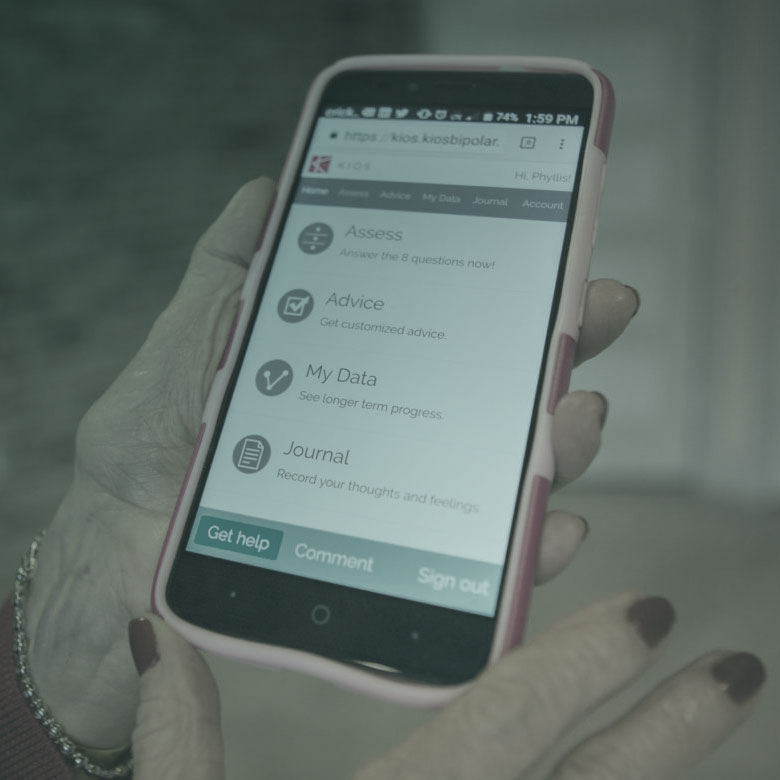Empowering Patients
Improving Outcomes
We strive to improve the quality of life for people who suffer from depression, mania and anxiety. By providing a practical, science-based tool for navigating shifting emotions, we help empower people to gain greater control over their lives.
The KIOS Team
The KIOS team is a dynamic mix of individuals with diverse skills. We share core values including a commitment to scientific rigor, improving public health, passionate customer support, mutual respect and ethical conduct.
KIOS would not exist without the many contributions of our dedicated and motivated colleagues including noted bipolar researchers, software engineers, and graphic designers. Most importantly, the scores of bipolar patients who participated in focus groups and tested KIOS in our studies guided the design with their valuable suggestions.

Developing scientifically validated products for more than 35 years.

Biomedical Development Corporation (BDC)
KIOS is a product of Biomedical Development Corporation. BDC was established in 1984 by a research scientist and an attorney-CPA as a for-profit business to combine cutting edge science with business resources, in order to commercialize healthcare products with superior clinical outcomes.
Recognizing that commercialization is a complex undertaking that requires a multitude of scientific and business skills, BDC has developed its technology strategy based on a multidisciplinary approach, integrating teams of distinguished scientists and sophisticated business professionals. BDC fosters an environment of collaboration and sharing among its employees, consultants, university researchers, and government entities.
For more than 35 years, BDC has taken scientific innovations and turned them into products. The BDC headquarters are in Lexington, KY and our manufacturing affiliate is located in San Antonio, TX.

Phyllis Siegel, J.D.
ceo

Gregg Siegel, M.S.
President
